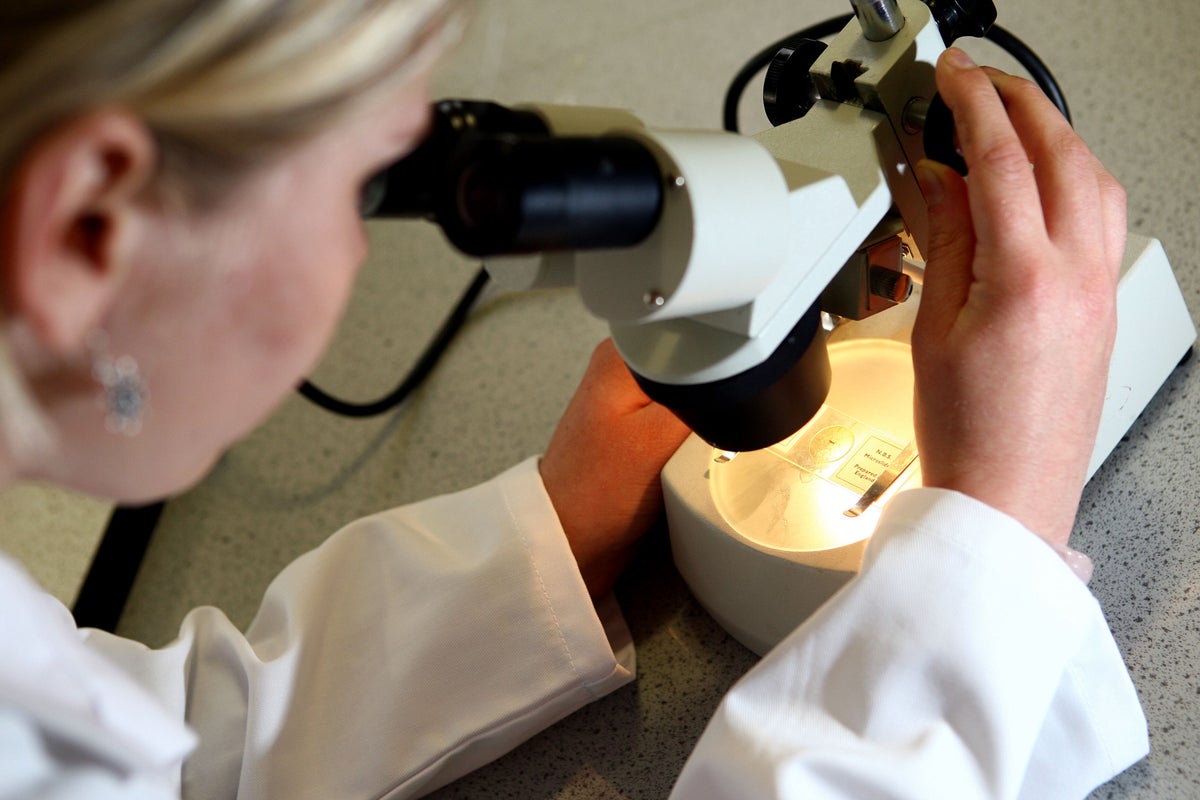
Pancreatic cancer “changes its diet” to keep growing, by switching from sugar glucose to a back-up fuel, new research reveals.
The “exciting” findings suggest that using new drugs to block the availability of this molecule called uridine could provide a new treatment for the most common and aggressive form of pancreatic cancer.
According to the study, uridine could help fuel other cancers too – such as lung, stomach and brain cancer.
The molecule uridine is available around the body and is essential for a healthy metabolism.
We hope our research efforts will lead to new treatment strategies for people diagnosed with pancreatic cancer— Dr Anguraj Sadanandam, ICR
However, researchers found that uridine, which is present in the environment around a tumour, also serves as a food source for pancreatic cancer when glucose is scarce.
Taking advantage of uridine in this way allows cancer cells to keep growing even when their usual food source is unavailable, researchers say.
Study co-leader Dr Anguraj Sadanandam, team leader in systems and precision cancer medicine at The Institute of Cancer Research, London (ICR), said: “Cancer cells salvage anything available in their environment and use it for their own benefit.
“We have found that the deadliest form of pancreatic cancer can even change its diet in order to survive.
“Cancers can feed off a molecule known as uridine as an emergency back-up when they cannot access the glucose they normally rely on to stay alive.
“Next, we will explore ways to use uridine to monitor existing therapy responses in pancreatic cancer and hopefully develop new drugs targeting UPP1.
“We hope our research efforts will lead to new treatment strategies for people diagnosed with pancreatic cancer.”
The study was led by scientists at the ICR and the University of Michigan in America.
Using a technique known as a phenotypic microarray – which allows for testing of thousands of cell characteristics at once – researchers looked for nutrients used by pancreatic cancer cells over time.
They found that uridine is broken down by an enzyme known as uridine phosphorylase-1 (UPP1) to produce a different form of sugar, ribose, which can fuel cancer cells.
Research in mice showed that knocking out the UPP1 gene stopped pancreatic cancer cells from using uridine and halted tumour growth largely as a result.
According to the scientists, these findings reveal a potential new strategy for treating pancreatic cancer.
The team also looked at patient samples and found that high levels of UPP1 were linked to poor survival in people with pancreatic cancer, as well as other cancer types.
Researchers found that levels of UPP1 are boosted in the presence of a type of cell signalling that promotes the growth of many cancer types, particularly pancreatic cancer.
This led them to believe that drugs which block this signalling – KRAS signalling – might also block uridine availability, cutting off cancer’s emergency food supply.
This work is hugely novel, potentially very impactful and really exciting— Dr Chris Macdonald, Pancreatic Cancer UK
Study co-leader Dr Costas Lyssiotis, associate professor in molecular and integrative physiology at the University of Michigan and the Rogel Cancer Centre in the US, said: “These very exciting findings open up new avenues for treating a cancer that currently lacks effective treatment options – by targeting the fact that pancreatic cancer cells can become dependent on uridine for their growth and survival.”
Professor Kristian Helin, chief executive of the ICR, said: “It is exciting that this new study has found that pancreatic cancers can switch their diets and may become dependent on a particular back-up fuel.
“We hope we can take advantage of this finding about the underlying biology of pancreatic cancers to find ways to treat the disease more effectively, including through use of existing drugs.”
Dr Chris Macdonald, head of research at Pancreatic Cancer UK, added: “This work is hugely novel, potentially very impactful and really exciting.
“We are very hopeful that these findings could lead to new and improved treatments for pancreatic cancer in the future.”
The study, published in Nature, was funded by Pancreatic Cancer UK and the Ian Harty Charitable Trust.







